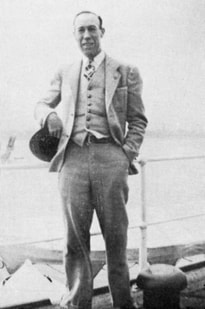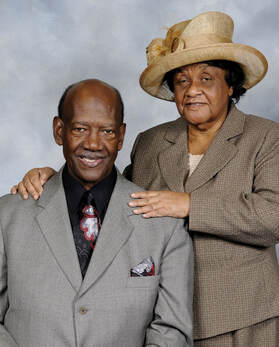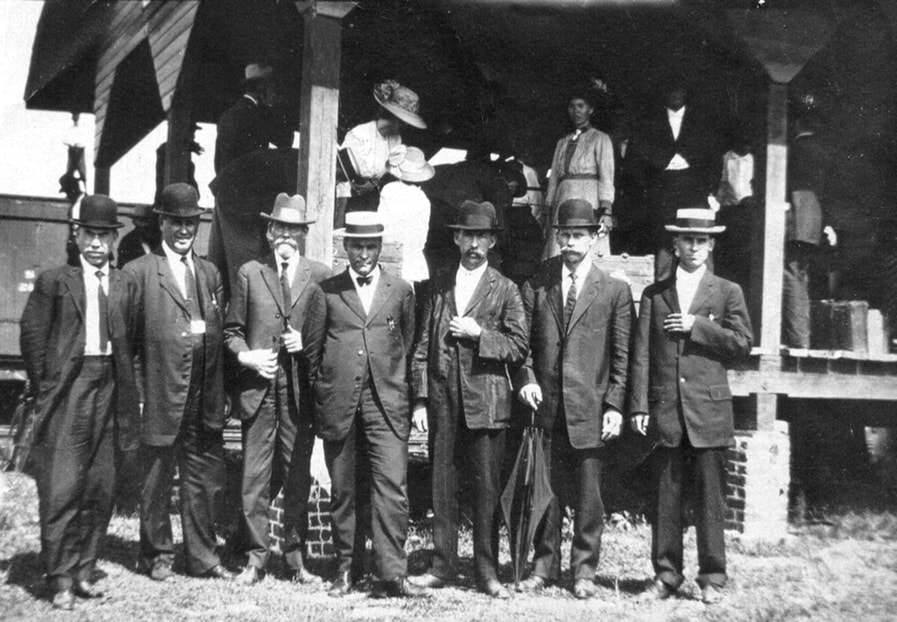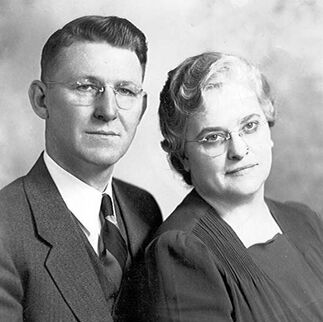MISSION, MIGRATION, & MOVEMENT
IN THE GLOBAL CHURCH
David G. Roebuck
“But you will receive power when the Holy Spirit comes on you; and you will be my witnesses
in Jerusalem, and in all Judea and Samaria, and to the ends of the earth” (Acts 1:8 NIV).
in Jerusalem, and in all Judea and Samaria, and to the ends of the earth” (Acts 1:8 NIV).
“This World Is Not My Home”
This world is not my home, I’m just a passing through
My treasures are laid up somewhere beyond the blue. . .
This world is not my home, I’m just a passing through
My treasures are laid up somewhere beyond the blue. . .
THE LYRICS OF Albert E. Brumley’s “This World Is Not My Home” resound with truth for the twenty-first century Christian. The ever-present tension of living in this world while preparing for the next is found throughout Scripture. Although Genesis begins with Adam and Eve in the Garden of Eden, the Book of Revelation ends with a description of the New Jerusalem, the promise of Jesus—“I am coming quickly,”—and the response of John—“Even so, come, Lord Jesus!” In Genesis, we read God’s promise of the land of Canaan to Abraham and his descendants (Genesis 12:1-7). Yet, the writer of Hebrews recognizes Abraham and other Old Testament saints as “strangers and pilgrims on the earth” (Hebrews 11:13).
Jesus commissioned the church to move beyond Jerusalem and Judea to all the peoples of the earth. Just before He was taken up into the clouds, His disciples asked if it was then “time to restore the kingdom to Israel.” In response, Jesus turned their attention away from their time and place toward the entire earth, and His words reverberate through the centuries to the church today. “But you will receive power when the Holy Spirit comes on you; and you will be my witnesses in Jerusalem, and in all Judea and Samaria, and to the ends of the earth” (Acts 1:8 NIV). This Great Commission of Jesus remains the mission of the church, and can only be finished by a truly global church.
Jesus commissioned the church to move beyond Jerusalem and Judea to all the peoples of the earth. Just before He was taken up into the clouds, His disciples asked if it was then “time to restore the kingdom to Israel.” In response, Jesus turned their attention away from their time and place toward the entire earth, and His words reverberate through the centuries to the church today. “But you will receive power when the Holy Spirit comes on you; and you will be my witnesses in Jerusalem, and in all Judea and Samaria, and to the ends of the earth” (Acts 1:8 NIV). This Great Commission of Jesus remains the mission of the church, and can only be finished by a truly global church.
|
Migration
mi∙gra∙tion [mi-grā-shən] Noun: moving from one country, place, or locality to another From the time of Adam and Eve, human beings have migrated to places other than their homeland—sometimes voluntarily, sometimes involuntarily. Reasons vary, but are often due to being forced to flee by elements beyond their control such as war or natural disaster. Frequently, immigrants are seeking opportunities to make a better life for their families. Adam and Eve were banished from Eden. Cain sought shelter in the land of Nod. Abram was called to the land of milk and honey. Israel was taken captive to Babylon. Jesus left heaven to become one with humankind and commissioned His disciples to go to the ends of the earth. Yet, despite Jesus’ command, it seemed as if many in the early church did not leave Jerusalem until a great persecution caused them to be “scattered abroad” (Acts 8:1). The world we live in has witnessed a dramatic rise in mass migration in the last 50 years. Countries that topped the list of foreign-born population in the year 2000 were Australia (23.6%), New Zealand (19.5%), and Canada (17.4%). Such migration has important implications for Christianity:
|
SNAPSHOT OF THE GLOBAL
CHURCH OF GOD (April 2016)
|
|
|
 Missions Representative J.H. Ingram traveled around the world introducing the Church of God in 1936.
Missions Representative J.H. Ingram traveled around the world introducing the Church of God in 1936.
J.H. INGRAM
I promised the Lord I would do anything He wanted me to, say anything He wanted me to say, go anywhere He wanted me to go, and stay anywhere He wanted me to stay, if He would baptize me with the Holy Ghost, and He took me at my word . —J. H. Ingram
KENTUCKY-BORN James Henry Ingram’s vision for reaching the world for Christ was a great catalyst to the expansion of Church of God missions. After meeting a missionary from India, the young Ingram’s love for missions compelled him to sell his car to pay for his first missionary assignment to Bermuda. From 1935 to 1947, he served as a missions representative. During this time, the Church of God entered over 20 countries and gained almost 20,000 members.
Ingram is best known for his “Golden Jubilee Tour” in 1936, during which he celebrated the 50th anniversary of the Church of God. Traveling 44,000 miles, he circled the earth meeting missionaries and congregations with an invitation to join the Church of God. His regular reports to the Church of God Evangel inspired countless members and led to the publication of his book, Around the World with the Gospel Light.
I promised the Lord I would do anything He wanted me to, say anything He wanted me to say, go anywhere He wanted me to go, and stay anywhere He wanted me to stay, if He would baptize me with the Holy Ghost, and He took me at my word . —J. H. Ingram
KENTUCKY-BORN James Henry Ingram’s vision for reaching the world for Christ was a great catalyst to the expansion of Church of God missions. After meeting a missionary from India, the young Ingram’s love for missions compelled him to sell his car to pay for his first missionary assignment to Bermuda. From 1935 to 1947, he served as a missions representative. During this time, the Church of God entered over 20 countries and gained almost 20,000 members.
Ingram is best known for his “Golden Jubilee Tour” in 1936, during which he celebrated the 50th anniversary of the Church of God. Traveling 44,000 miles, he circled the earth meeting missionaries and congregations with an invitation to join the Church of God. His regular reports to the Church of God Evangel inspired countless members and led to the publication of his book, Around the World with the Gospel Light.
Movement
movement [mūv-mənt] Noun: an organized effort to promote or attain an end
Today, the Church of God is organizationally arranged in six distinct geographical regions: (1) the United States of America and Canada; (2) the Caribbean; (3) Latin America; (4) Europe, Eurasia, Middle East; (5) Africa; and (6) Asia/Pacific. Although such organization is helpful and necessary for administrative purposes, it does not entirely reveal the many ways in which the Church of God has spread from a vital restoration movement in southeast Tennessee to a great denomination with a global mission.
This brief account tells the exciting story of how God has used the Church of God to fulfill Christ’s commission to take the gospel “to the ends of the earth.” We will see that our emergence as a global church developed in many different ways. Missionaries responding to God’s call have taken the gospel to new nations and territories. Migrants have emigrated from their homeland for economic or political reasons. What began as a single congregation in Monroe County, Tennessee, is now a global movement ministering in 185 countries and territories of the world.
movement [mūv-mənt] Noun: an organized effort to promote or attain an end
Today, the Church of God is organizationally arranged in six distinct geographical regions: (1) the United States of America and Canada; (2) the Caribbean; (3) Latin America; (4) Europe, Eurasia, Middle East; (5) Africa; and (6) Asia/Pacific. Although such organization is helpful and necessary for administrative purposes, it does not entirely reveal the many ways in which the Church of God has spread from a vital restoration movement in southeast Tennessee to a great denomination with a global mission.
This brief account tells the exciting story of how God has used the Church of God to fulfill Christ’s commission to take the gospel “to the ends of the earth.” We will see that our emergence as a global church developed in many different ways. Missionaries responding to God’s call have taken the gospel to new nations and territories. Migrants have emigrated from their homeland for economic or political reasons. What began as a single congregation in Monroe County, Tennessee, is now a global movement ministering in 185 countries and territories of the world.
 Bishop Felix and Lilith Poyser founded the New
Bishop Felix and Lilith Poyser founded the New Testament Church of God in Philadelphia.
BISHOP FELIX F. POYSER: An Immigrant With a Mission
Felix F. Poyser was born in 1929 into a Jamaican family that had migrated to Cuba for economic reasons. Yet at a young age, his family returned to their homeland. Back in Jamaica, he came to know the Lord in an open-air meeting and followed the advice of his spiritual elders to attend the Jamaican School of Theology in Montego Bay.
Like many other young adult Jamaicans, Poyser migrated to the United Kingdom in 1955 where he married Lilith. They became very involved in the New Testament Church of God, which is the name of the Church of God in the West Indies, and those countries to which West Indians immigrated in large numbers. With some reluctance, he agreed to become a pastor and pioneered a church in Sheffield, England, in 1957. Later, he pastored the congregation in Wolverhampton, England. While there, he served as district overseer and purchased a former Anglican Church building for the congregation.
Desiring a change, in 1974, the Poyser family immigrated to the United States where they settled in Philadelphia. There, he organized a New Testament Church of God in an inner-city neighborhood. Bishop Poyser and his congregation provided spiritual vitality to their community, along with many needed social services, as they assisted Jamaican immigrants and others in making Philadelphia their home. He also aided the establishment of other West Indian congregations.
After outgrowing several locations, the church occupied a converted factory in 1994. Bishop Poyser and the New Testament Church of God had made such a positive impact on West Philadelphia that, not only did the mayor attend their dedication service, but the city renamed the block in front of the church “Reverend Felix Poyser Way.”
Felix F. Poyser was born in 1929 into a Jamaican family that had migrated to Cuba for economic reasons. Yet at a young age, his family returned to their homeland. Back in Jamaica, he came to know the Lord in an open-air meeting and followed the advice of his spiritual elders to attend the Jamaican School of Theology in Montego Bay.
Like many other young adult Jamaicans, Poyser migrated to the United Kingdom in 1955 where he married Lilith. They became very involved in the New Testament Church of God, which is the name of the Church of God in the West Indies, and those countries to which West Indians immigrated in large numbers. With some reluctance, he agreed to become a pastor and pioneered a church in Sheffield, England, in 1957. Later, he pastored the congregation in Wolverhampton, England. While there, he served as district overseer and purchased a former Anglican Church building for the congregation.
Desiring a change, in 1974, the Poyser family immigrated to the United States where they settled in Philadelphia. There, he organized a New Testament Church of God in an inner-city neighborhood. Bishop Poyser and his congregation provided spiritual vitality to their community, along with many needed social services, as they assisted Jamaican immigrants and others in making Philadelphia their home. He also aided the establishment of other West Indian congregations.
After outgrowing several locations, the church occupied a converted factory in 1994. Bishop Poyser and the New Testament Church of God had made such a positive impact on West Philadelphia that, not only did the mayor attend their dedication service, but the city renamed the block in front of the church “Reverend Felix Poyser Way.”
David G. Roebuck, Ph.D. is director of the Dixon Pentecostal Research Center, Church of God Historian,
and Assistant Professor of the History of Christianity at Lee University.
and Assistant Professor of the History of Christianity at Lee University.


